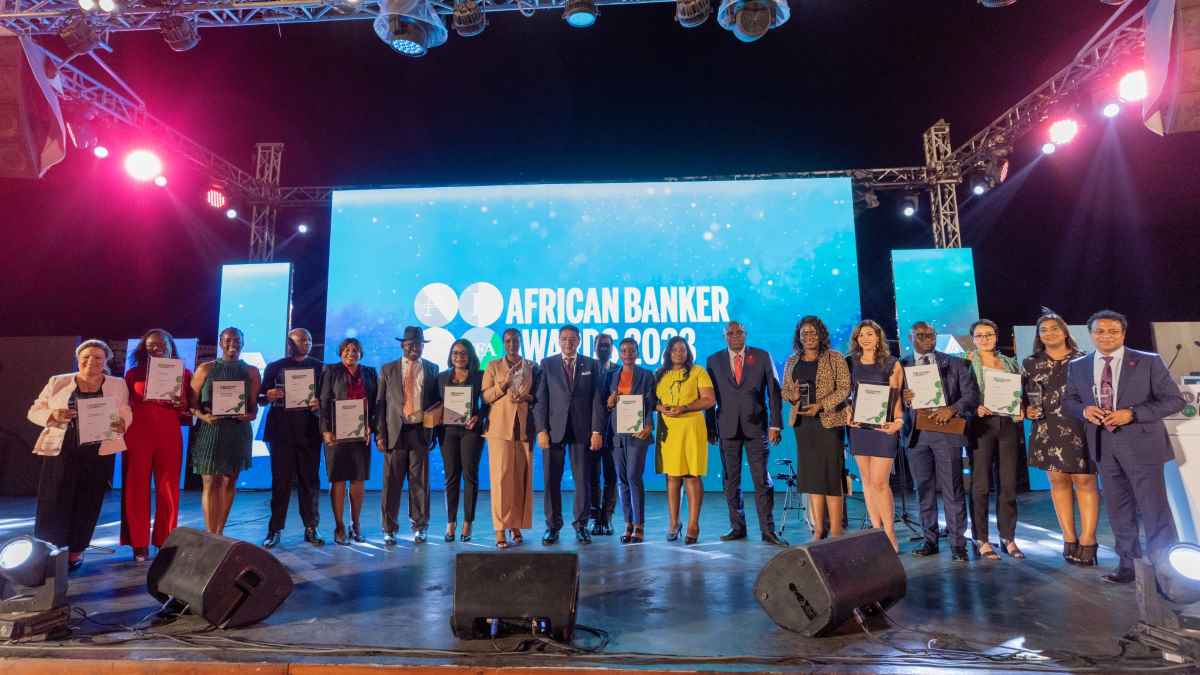Now in its 17th edition, the African Banker Awards celebrate the achievements of individuals and institutions that have contributed significantly to the growth and development of Africa’s banking sector over the past year
SHARM EL-SHEIKH, Egypt, May 25, 2023/APO Group/ —
The African Banker Awards 2023 Gala Ceremony, the most prestigious event in the African banking calendar, took place last night at the Rixos Hotel in Sharm El Sheikh, Egypt on the sidelines of the African Development Bank Annual Meetings. The ceremony was attended by over 300 of the continent’s leading bankers, regulators, and policymakers.
Now in its 17th edition, the African Banker Awards celebrate the achievements of individuals and institutions that have contributed significantly to the growth and development of Africa’s banking sector over the past year.
Highlights from the ceremony:
Esther Kariuki becomes the second woman to win African Banker of the Year Award
Perhaps one of the most coveted prizes of the evening, the African Banker of the Year prize was awarded to Esther Kariuki, Head of Agriculture Business at the Co-op Bank of Kenya. Ms Kariuki has been a central figure in advancing agriculture as a key asset class for her institution. Not only a leader and role model, she was also responsible for considerably increasing lending to the agriculture sector and oversaw the roll-out of the platform Co-op Bank Soko, a digital marketplace that connects the agriculture value chain and ensures, among other things, that small-holder farmers receive a higher price for their produce.
Afreximbank scores a brace at African Banker Awards 2023
The African Export-Import Bank (Afreximbank) won two prestigious awards in Sharm El Sheikh, in recognition of its growing leadership within Africa’s financial services sector. The Cairo-based institution was celebrated as both African Bank of the Year and Development Financial Institution of the Year, making it the sole institution to win more than one award during this year’s ceremony.
Mauritius’ Harvesh Seegolam wins Central Bank Governor of the Year
The youngest ever serving governor of Mauritius Central Bank, Harvesh Kumar Seegolam, took the Central Bank Governor of the Year Award. Appointed at the onset of the COVID-19 pandemic, Governor Seegolam leveraged Mauritius Investment Corporation (MIC) to provide critical financial support to key sectors of the economy by investing in private sector operators. Its latest returns report demonstrated that the investments made through the MIC have increased in value, despite the challenging economic conditions faced.
South African banks swept many of the Deal of the Year categories. South Africa’s Enoch Godongwana won the Minister of Finance of the Year Award. He was recognised for his steadfast management of the economy as finance minister as well as the work he has done to encourage investment to accelerate the energy transition.
The African continent has the highest percentage of women entrepreneurs in the world. Letshego Nigeria took the inaugural AFAWA Bank of the Year Award, a category spotlighting financial institutions empowering female entrepreneurs across the continent. The Affirmative Finance Action for Women in Africa (AFAWA) is a pan-African initiative to bridge the $42 billion financing gap facing women in Africa.
The African Banker Icon was won by veteran dealmaker Miguel Azevedo, head of investment banking for sub-saharan Africa excluding South Africa at Citi. The lifetime achievement award went to another veteran banker, Hisham Ezz Al-Arab, former Managing Director and current Non-executive Chairman of CIB Bank, Egypt’s largest private sector bank.
“This year’s award ceremony is a testament not only to the vibrancy and dynamism of Africa’s banking industry but also its increasing diversity,” said Omar Ben Yedder, Committee Chairman and Group Publisher at IC Publications, publishers of African Banker. “The financial services industry continues to demonstrate excellence, innovation and impact in their respective markets and regions.
FinTech, Climate Finance, Cross-Border payments are all being shaped by the leaders we are recognising today.”
The ceremony is organised by African Banker magazine with the African Development Bank as its High Patron. This year’s AfDB Meetings focused on mobilising private sector finance towards green growth. The 2023 edition was sponsored by the African Guarantee Fund, the Trade and Development Bank (TDB) and Tanzania’s CRDB Bank.
Full list of winners:
Banker of the Year
Ms Esther Kariuki, Co-operative Bank of Kenya
Bank of the Year
Afreximbank
African Banker Icon
Miguel Azevedo, Citi
Lifetime Achievement
Mr. Hisham Ezz Al-Arab, Commercial International Bank
Central Bank Governor of the Year
Harvesh Seegolam, Bank of Mauritius
Minister of Finance of the Year
The financial services industry continues to demonstrate excellence, innovation and impact in their respective markets and regions
Hon. Enoch Godongwana, South Africa
Sustainable Bank of the Year
Nedbank, South Africa
DFI of the Year
Afreximbank
Fintech of the Year
MFS Africa
SME Bank of the Year
La Caisse des Dépôts et Consignations – CDC
Deal of the Year – Debt
Harmony Gold Company syndicated multi-tranche, multi-currency, loan facility of US$400m and R4bn – Absa & Nedbank
Deal of the Year – Equity
US$298m Infinity Energy equity investment and Lekela Power acquisition – Africa Finance Corporation
Deal of the Year – Agriculture
US$78m funding facility for the Southern Oil Structured Commodity Finance Transaction – Absa
Deal of the Year – Infrastructure
US$900m debt funding facility for Scatec Solar PV plus Battery Storage Project – Standard Bank
Regional Bank of the Year – North
Bank of Africa
Regional Bank of the Year – Southern
Zambia National Commercial Bank (Zanaco)
Regional Bank of the Year – East
CRDB Bank
Regional Bank of the Year – Central
Trust Merchant Bank
Regional Bank of the Year – West
Vista Bank
AFAWA Bank of the Year Award
Letshego, Nigeria
Distributed by APO Group on behalf of African Banker.


 Energy4 days ago
Energy4 days ago
 Business4 days ago
Business4 days ago
 Business4 days ago
Business4 days ago
 Energy3 days ago
Energy3 days ago
 Business4 days ago
Business4 days ago
 Business4 days ago
Business4 days ago
 Energy4 days ago
Energy4 days ago
 Energy3 days ago
Energy3 days ago












